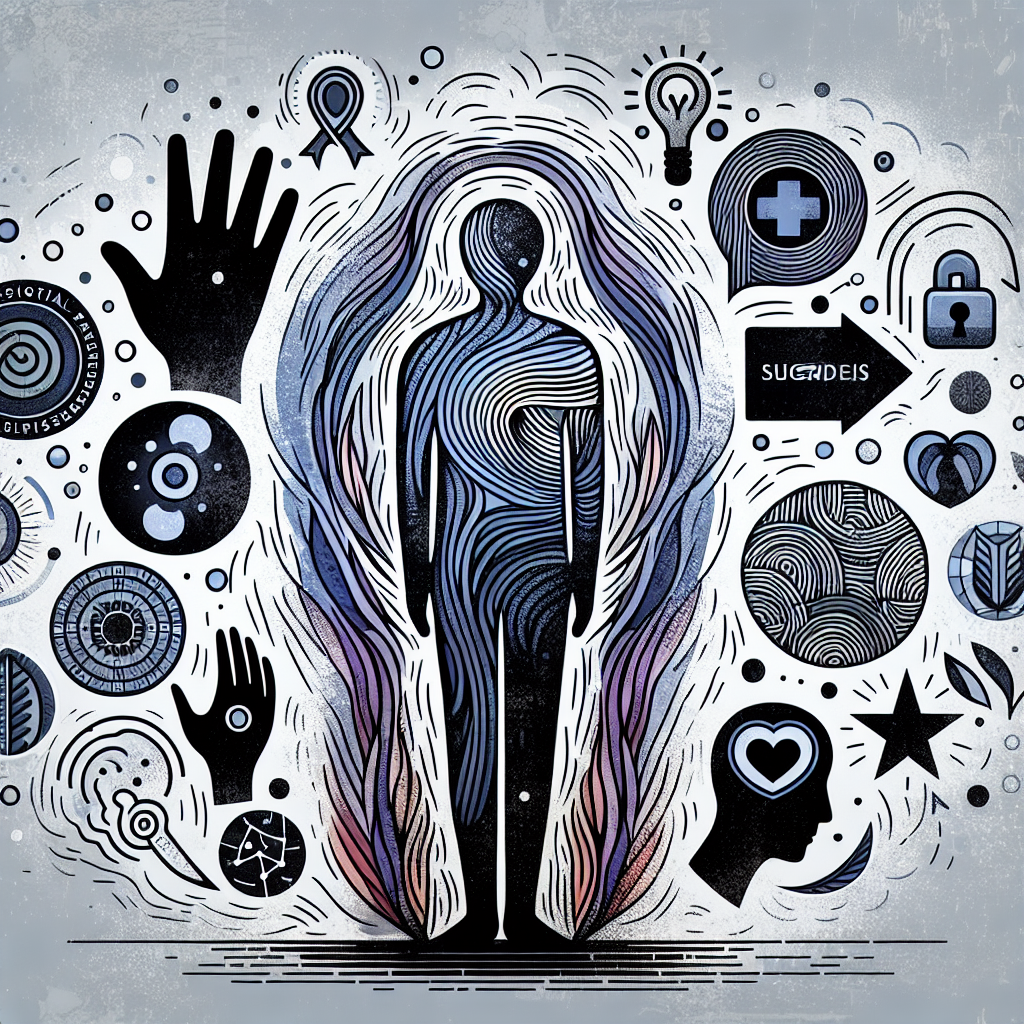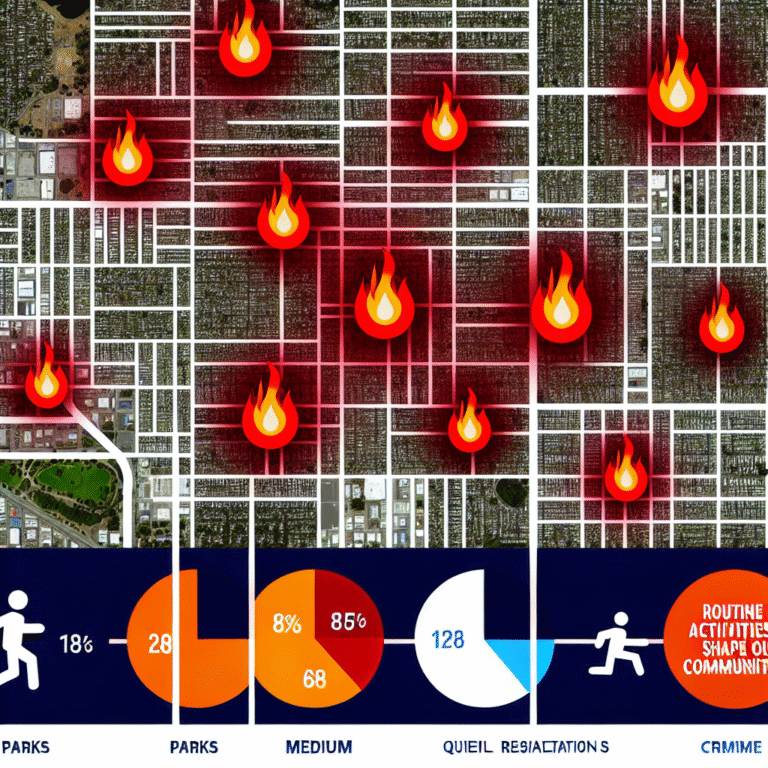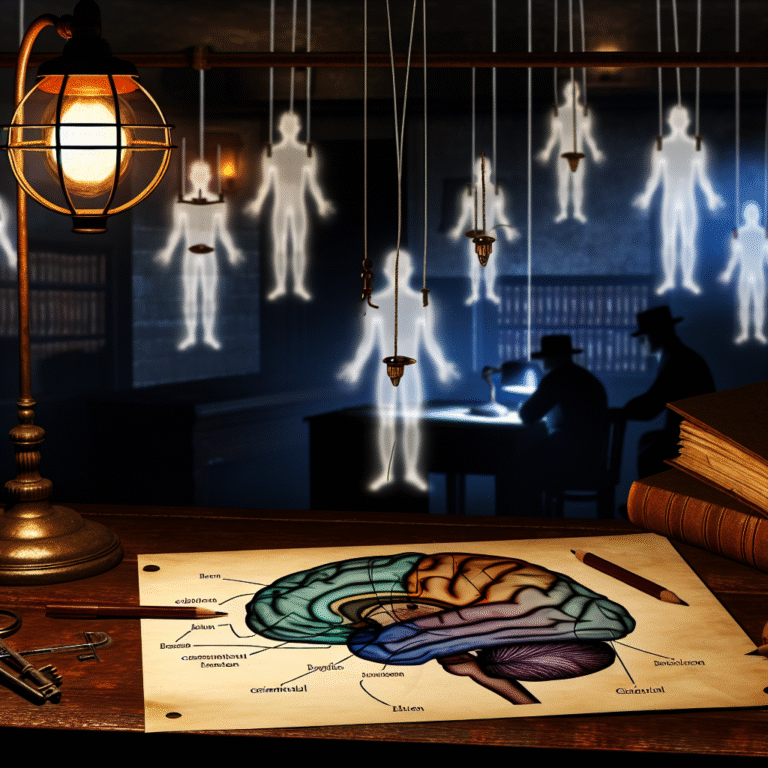
Introduction
Imagine being trapped in a world where human connections feel shallow, and emotions seem muted. This is the reality for those affected by Antisocial Personality Disorder (ASPD). Recognizing the signs and seeking help can be a vital step towards healing—not just for the individual, but also for the family and community around them. In this article, "Antisocial Personality Disorder: Recognizing Signs and Seeking Help," we will explore the nuances of ASPD, its implications, and how to navigate the complex landscape of support and treatment.
Understanding Antisocial Personality Disorder
What is Antisocial Personality Disorder?
Antisocial Personality Disorder is a mental health condition characterized by a persistent pattern of disregard for the rights of others, leading to deceitful, manipulative, and often criminal behavior. It’s crucial to understand that ASPD is not just a phase or collection of bad habits; it’s a recognized psychological disorder that requires professional intervention.
Prevalence and Impact
ASPD affects approximately 1% of the general population, although estimates can vary. Men are diagnosed with ASPD more frequently than women, but the disorder can manifest differently in each gender. The implications of living with this disorder can lead to fractured relationships, legal issues, and emotional distress for both the sufferer and those around them.
Recognizing the Signs of Antisocial Personality Disorder
Key Behavioral Signs
Disregard for rules and social norms: People with ASPD often find themselves flouting laws and ignoring societal expectations without remorse.
Deceptiveness: This often manifests as lying, using aliases, or conning others for personal gain.
Impulsivity: An inability to plan for the future can lead to rash decisions, such as sudden job changes or reckless financial behavior.
Irritability and aggression: Frequent physical fights or assaults can be evident in individuals with ASPD.
- Lack of remorse: This sign is glaringly apparent when individuals hurt others or violate their rights without feeling guilt.
Case Study: Jake
Jake, a 30-year-old man, experienced numerous run-ins with the law during his teens and twenties. His impulsivity led him to quit jobs without notice, often leading to increasing debt levels. Friends and family noted his deceitfulness; he frequently borrowed money under false pretenses and did not pay it back. After being incarcerated for a serious offense, Jake sought help through therapy and medication, leading him on a path toward understanding his condition.
Analysis: Jake’s story illustrates how early signs of ASPD manifested and ultimately resulted in severe consequences. By recognizing his symptoms and seeking help, he began a crucial recovery journey.
The Importance of Professional Help
Why Seeking Help Matters
If you or someone you love exhibits signs of Antisocial Personality Disorder, seeking professional help is a non-negotiable first step. Only a qualified mental health professional can provide a proper diagnosis and create a tailored treatment plan. Early intervention can make a significant difference in coping strategies and overall quality of life.
Treatment Options
Psychotherapy: Cognitive Behavioral Therapy (CBT) is often used, focusing on understanding thought patterns and behaviors.
Medications: While there are no medications specifically designed for ASPD, antidepressants and mood stabilizers can help manage symptoms.
- Support Groups: Engaging with others in similar situations can offer valuable insights and coping mechanisms.
Support for Families and Friends
The Ripple Effect of ASPD
The effects of Antisocial Personality Disorder extend beyond the individual. Family members often experience emotional turmoil, strained relationships, and chronic stress.
How to Support a Loved One
Educate Yourself: Understanding the complexities of ASPD allows you to approach the situation with empathy and knowledge.
Encourage Therapy: Gently prompt your loved one to seek professional help, emphasizing the potential benefits.
- Set Boundaries: Establishing clear boundaries is essential to protect your own mental and emotional well-being.
Case Study: Lisa
Lisa’s brother, Tom, was diagnosed with ASPD at 28. Initially overwhelmed, Lisa sought educational resources and joined a support group for families. Through this journey, she learned the importance of setting boundaries while also supporting her brother in his therapy sessions.
Analysis: Lisa’s story demonstrates how knowledge and community can empower family members to cope with the challenges of having a loved one with ASPD.
FAQs About Antisocial Personality Disorder
1. Is Antisocial Personality Disorder curable?
No, while ASPD is not curable, individuals can learn to manage symptoms and improve their relationships through therapy and support.
2. How does one get diagnosed with ASPD?
Diagnosis is typically made by a mental health professional through interviews and assessments, focusing on behavior patterns and history.
3. Can people with ASPD change?
While significant change can be difficult, many individuals can develop coping strategies and improve their relationships with the right support.
4. What are the long-term effects of untreated ASPD?
Untreated ASPD can lead to chronic emotional distress, legal issues, and ongoing interpersonal conflicts.
5. Is there a difference between ASPD and psychopathy?
Yes, while they share some traits, psychopathy is often viewed as a more severe form of ASPD, characterized by emotional detachment and lack of empathy.
Conclusion
Antisocial Personality Disorder: Recognizing Signs and Seeking Help is vital for not only the individual affected but also their relationships and communities. Awareness, understanding, and professional intervention can pave the way for progress and healing. Remember, it’s never too late to seek help—not just for the individual affected by ASPD but also for their loved ones. Together, through compassion and support, a healthier future is within reach.
Final Thoughts
Dealing with Antisocial Personality Disorder might feel daunting, but it’s crucial to remember that you are not alone in this journey. Equip yourself with knowledge, seek help, and engage with supportive communities. Healing is possible, and it begins with the first step.
If you or someone you know needs immediate support, don’t hesitate to reach out to a mental health professional today. Recognize the signs, seek help, and embark on a journey towards understanding and recovery.















